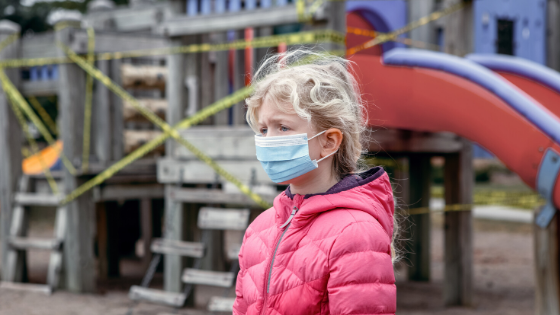With more grades returning to school in coming weeks, in line with South Africa’s phased back-to-school approach, parents and guardians should keep the lines of communication open through frank conversations and feedback, an education expert says.
“Our children are being faced with many challenges from different fronts during this time, and despite their schools being familiar spaces, that to which they are returning is looking different to the way it did before,” says John Luis, Head of Academics at ADvTECH Schools.
“On the homefront, they would have been exposed to the concerns around fear of Covid-19, the economic impact of the lockdown, keeping their educational journeys on track despite not being physically in school, and many other stressors,” he notes.
And although the economy and schools are opening up again, with the daily lives of South Africans returning to some new version of normality, children will still have to grapple with many, and new challenges, in the weeks and months to come.
“It’s important that parents help students understand – in an age-appropriate way – that although we are going back to ‘normal’, things will be different for quite some time still, and to help them prepare mentally and emotionally for the changes that may be on the cards.
“Parents should also be realistic and not expect students to bounce back into the school groove immediately – it is going to take some time to adjust to reshuffled curricula on the one hand, and the logistical requirements around staying as safe as possible for the foreseeable future, while the virus remains a threat. So, children must be prepared for the reality that although they are getting back into a school routine, things will still be very different from the way they were before. And this should not be viewed in a negative light, but rather accepted and embraced as the new way we’ll live our lives for now,” says Luis.
He says as a first step, parents should study the information they received from schools, so that they understand how adjusted logistics will work, what will be expected from students in terms of mask wearing and social distancing, as well as any other novel processes and procedures. These should then be shared and discussed with students to ensure they are not caught off-guard by how things have changed on the campus.
“Parents have an important role to play in helping their children understand the situation, acknowledging their emotional responses, and helping them navigate these feelings in a healthy way,” says Luis.
It is also necessary to design and start implementing new routines, he says.
“School times may be staggered, and there will be no extra-murals, so the school day will also look different. Parents who work may need to consider how they are going to manage these changed logistics, and must devise a plan for how the day will look going forward. Children would have, to some degree, become used to taking the day and their own time management on their own terms, so waking up very early again while it is still dark, and sticking to a stricter routine, may take some getting used to.
“There are many examples such as these, some minor and some major, of how the days and the lives of our children will be changing. These will also take their toll, which is why communication is so important, and also an acceptance of the fact that everyone is trying to find their groove again, but that it isn’t always going to be easy. We as parents have to be kind to ourselves in this regard, and also allow our children the space and support to find their own feet again on their educational journey.”
Very importantly, some allowance has to be made for the fact that some students might return to find that some of their peers have, during lockdown, mastered work which they have not yet.
“Educators are very aware of this reality, and will be doing all they can to get everyone on the same page once more. It is not worth adding undue pressure at this stage, which will only introduce additional anxiety for children, and between children and their parents. If a child is concerned about ‘being behind’, put their mind at ease that you will address the matter together, and speak to the teacher to get guidance,” says Luis.
“The key to the coming transition, is to understand that things will be different and challenging at first for most, but that with understanding and regular, open communication, the road will become increasingly less rocky.”

About ADvTECH
The ADvTECH Group, a JSE-listed company, is Africa’s largest private education provider and a continental leader in quality education, training, skills development and placement services. The Group reports its performance in a segmental structure reflecting the Schools and Tertiary as two separate education divisions, and Resourcing as the third division.
ADvTECH’s Schools division comprises 10 brands with more than 100 schools across South Africa, including Gaborone International School in Botswana and Crawford International in Nairobi, Kenya.
It owns 9 tertiary brands, across 30 campuses across South Africa and the rest of Africa, and its higher education division, The Independent Institute of Education, is SA’s largest and most accredited private higher education provider. ADvTECH’s 9 resourcing brands places thousands of candidates annually, assisting graduates to make the transition from the world of study to the world of work.

 Kaboutjie SA Mommy Blogs by Lynne Huysamen
Kaboutjie SA Mommy Blogs by Lynne Huysamen





I think the children are going to surprise us by how quickly they’ll adapt to the new normal.
Sure the first few weeks are going to be filled with a few hurdles, but I think after that everything will be sort of smooth sailing.
My kids have been back at school for a month Chantelle and they have adapted so well.